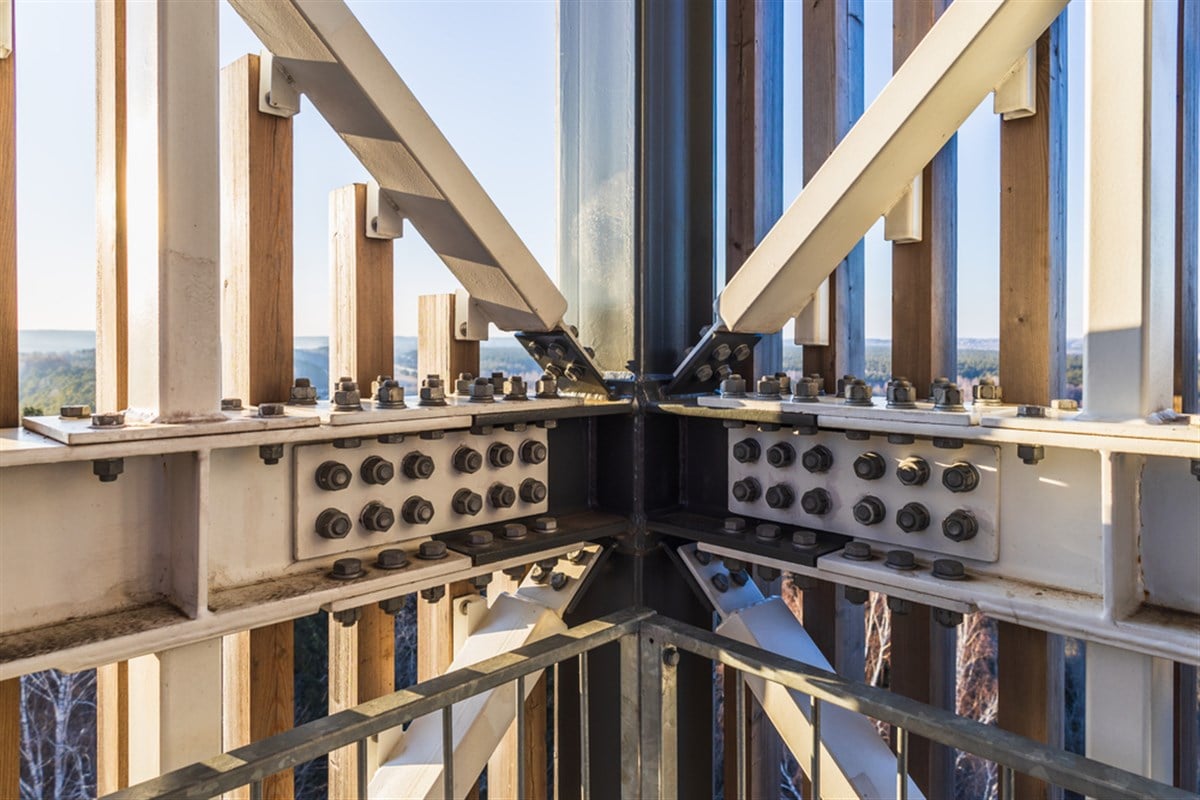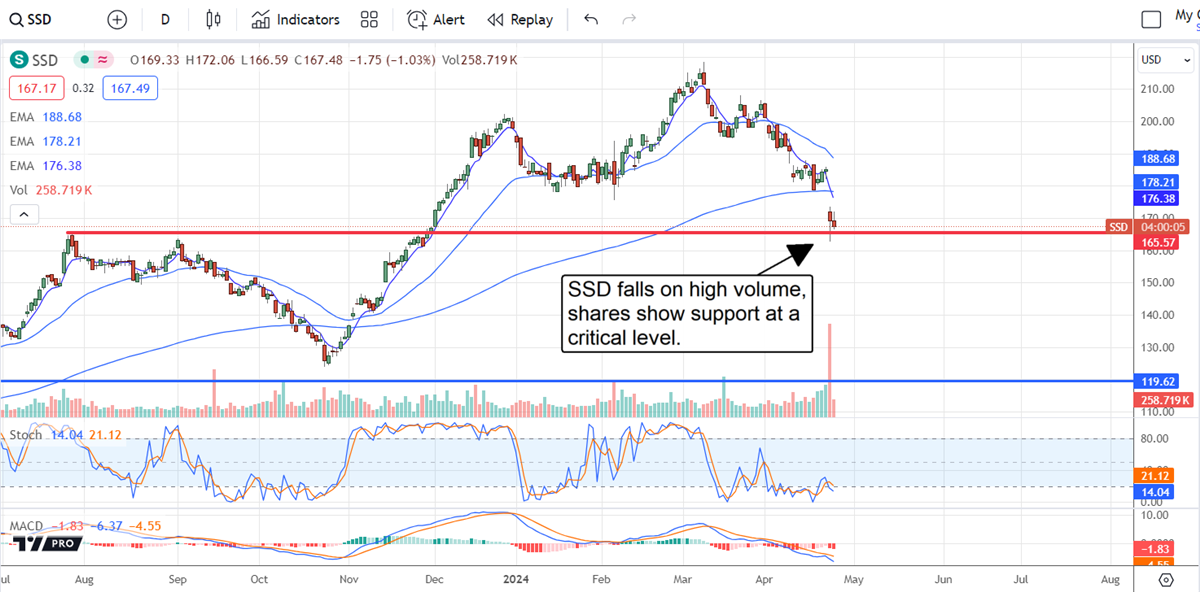
Simpson Manufacturing Co. (NYSE: SSD) sent its share price reeling as it reported its struggles during Q1 2024, but this is a great time to buy this construction stock. You don’t buy Simpson because of today’s results, or even next quarter’s or next year’s, but because of the long-term outlook. This company is a budding Dividend King on track to sustain solid dividend growth for several decades.
Sustained dividend growth is important because an increasing distribution helps offset the rot of inflation while compounding returns on investment and building value for shareholders in other ways. Sustained distribution increases attract buy-and-hold investors, reduces volatility, and helps support above-average valuations.
Stocks like Cintas Corp. (NASDAQ: CTAS) are a great example. That company’s stock has risen by quadruple digits while steadily growing the business and leveraging that growth into sustainable distribution increases. The company has increased for nine consecutive years, with the 10th increase set for this summer.
[content-module:DividendStats|NYSE:SSD]While Simpson’s dividend is not attractive at face value, it's the internal metrics that make it shine. The 0.65% yield is below the industry and S&P 500 average but far safer and more reliable. The company’s balance sheet is a fortress with cash flow supporting the internal funding of growth, cash building compared to last year, and very low leverage ratios: long-term debt-to-equity is about 0.25x while debt-to-cash is about 1.25x. The takeaway is that the 12% payout ratio leaves ample room in the books to sustain the 5% CAGR, and earnings growth is expected. 2024 will be a challenging year, but it will lead to a rebound in housing in 2025.
Simpson Manufacturing Has Tough Quarter; Guides for Margin Growth
Simpson Manufacturing had a tough time in Q1, with weaknesses across the business. The company reported $530.58 million in net revenue for a decline of 0.7% that missed the analyst's consensus by 260bps. North America and APAC saw tepid growth below 0.5%, offset by more significant European weakness. Sales in Europe fell 3.4% due to declining volume, which would have been worse without favorable FX translation. In North America, volume grew by 8% but was offset by pricing and timing of discounts.
Margin was also a concern in Q1. The gross margin contracted by 120bps on rising costs compounded by increased spending. Income from operations fell by 18.6%, net income by 14.5%, and GAAP earnings by 13.5% to $1.77. The $1.77 is 15 cents shy of the consensus but sufficient to sustain operational quality and the outlook for capital returns. Capital returns include dilution-fighting share repurchases that reduced the share count by 0.45% average in Q1.
The guidance is non-specific regarding revenue and earnings but comes with a favorable outlook for margin. The company expects the full-year margin to widen to 20% to 21.5% from 18.1% for a gain of 240bps at the high end.
Simpson Manufacturing Returns to More Sustainable Levels
[content-module:CompanyOverview|NYSE:SSD]Among the problems for Simpson’s stock price today is the valuation. The stock is trading at 22x this year’s outlook and 18x next year’s after its implosion, suggesting higher prices may be hard to come by soon. However, At 18x next year’s earnings, there is an opportunity for a price-multiple expansion as the business pivots back to growth. Analysts are bullish on the stock, which now has a 15% upside relative to the consensus. Consensus may be adjusted over the next few weeks, but a reversal in sentiment is not expected.
The price action in SSD fell hard following the report, and it is down again the day after, but there are signs of solid support. The initial sell-off found support at a critical level and resulted in historically high volume. The volume spike and signs of support suggest capitulation in the market and may signal a bottom. If so, SSD shares will move sideways at this level until later in the year. If not, SSD could fall below critical support, in which scenario it could fall to the $120 level.

